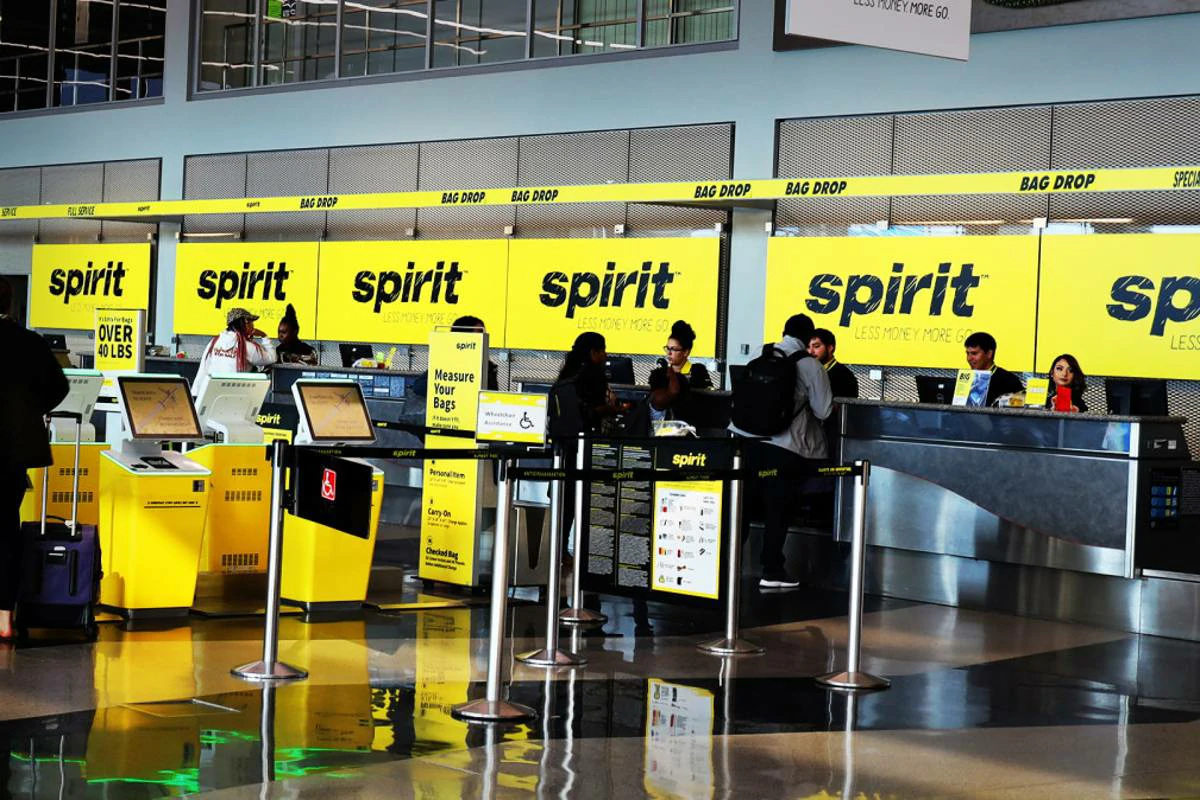How much is a Spirit Airlines checked bag? Answer is – The cost of a Spirit Airlines checked bag varies depending on several factors, including when you purchase the bag, the type of fare you have, and the number of bags you check. Generally, you can expect to pay between $36 and $65 for your first checked bag when purchased during online check-in. The price can increase if you wait to purchase at the airport or gate. Each additional checked bag will cost more. You can find the most up-to-date pricing information on the Spirit Airlines website or app.
Summary
- Spirit Airlines has a unique fee structure for bags.
- Personal items are free, but carry-on and checked bags have fees.
- Bag fees vary based on when and how you purchase them (online, airport, gate).
- Spirit offers bundles and membership programs to potentially reduce baggage costs.
- There are ways to avoid bag fees, such as packing light and using a personal item.
- Spirit’s baggage fees are generally lower than other airlines, but they charge for more items.
How Spirit Baggage Fees Work
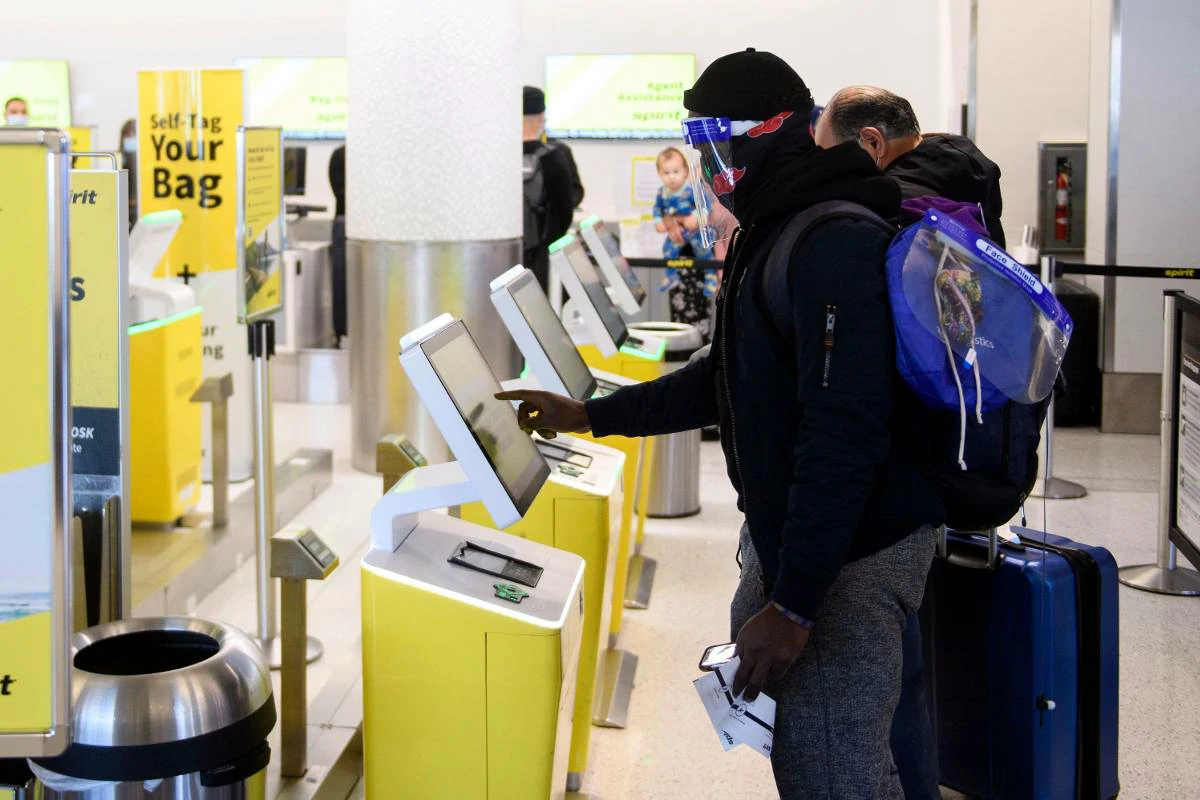
Spirit Airlines, known for its ultra-low-cost fares, operates on a unique “bare fare” model. This means your ticket price covers only the essentials—getting you and your personal item from point A to point B.
Everything else, including carry-on and checked bags, comes with an additional fee. This allows Spirit to offer base fares that are often significantly lower than traditional airlines.
Navigating Spirit’s baggage fees can seem a bit complex at first glance, as they vary depending on several factors:
- Type of Bag: Personal item (free), carry-on, checked bag.
- Time of Purchase: Booking online during initial reservation is cheapest, followed by online check-in, then airport, and finally, gate purchases (most expensive).
- Fare Type: Certain fares or bundle options may include a free carry-on or checked bag.
- $9 Fare Club Membership: Members get discounts on bags and other fees.
- Promotions: Spirit occasionally runs promotions offering lower bag fees.
Why Spirit Airlines Has a Different Fee Structure
Spirit Airlines’ bare fare model and a la carte pricing for baggage and other services are not just about offering lower fares. They’re part of a deliberate strategy to provide customers with greater transparency and control over their travel expenses.
Ben Baldanza, the former CEO of Spirit Airlines, explained in an interview with Forbes, “We believe that customers should only pay for what they use. If you don’t need a checked bag, you shouldn’t have to pay for it. Our model allows customers to choose the services they want and create a personalized travel experience.”
This approach, while initially met with some resistance, has found a niche among budget-conscious travelers who prioritize low fares above all else. By unbundling services, Spirit gives passengers the flexibility to pay only for the amenities they value most, potentially resulting in significant cost savings.
Spirit Baggage Fees: The Basics
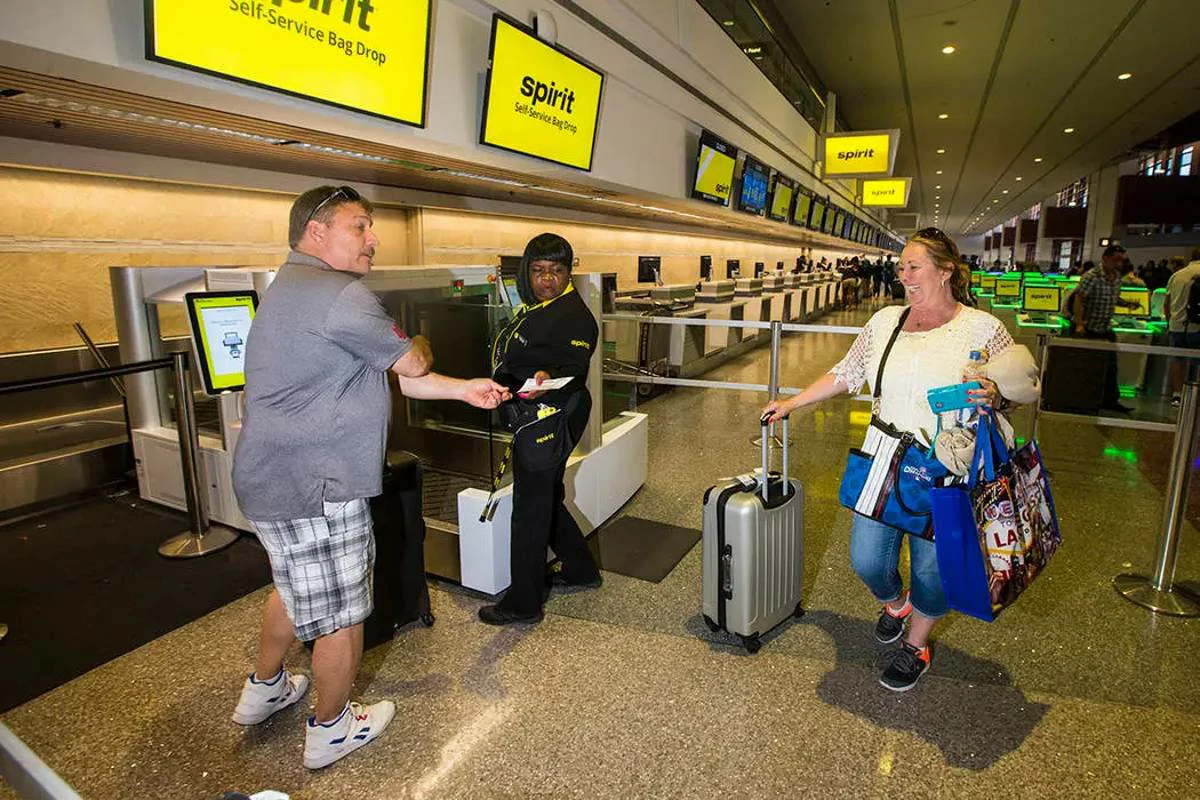
Understanding Spirit Airlines’ baggage fees is crucial for budgeting your trip accurately and avoiding surprises at the airport. Let’s break down the different types of bags and the associated costs.
1. Personal Item: What It Is and What It Costs
Your personal item is the only bag that flies free on Spirit. This is typically a small backpack, purse, briefcase, or laptop bag that can fit under the seat in front of you.
Spirit’s official dimensions for a personal item are 18 x 14 x 8 inches (45 x 35 x 20 cm), including handles and wheels.
There’s no weight limit for personal items, but it’s expected to be light enough for you to lift into the overhead bin if necessary.
2. Carry-On Baggage Fees: A Breakdown
If your bag is too large to be considered a personal item, it’s considered a carry-on bag. Carry-on bags are stored in the overhead bin and have specific size and weight restrictions.
Spirit’s maximum dimensions for a carry-on are 22 x 18 x 10 inches (56 x 46 x 25 cm), including handles and wheels. The weight limit is 40 pounds (18 kg).
Carry-on bag fees vary widely depending on when and how you purchase them. Here’s a general overview:
- Online Booking: Cheapest option, typically starting at $37.
- Online Check-In: Slightly more expensive than booking online.
- Airport Kiosk/Counter: Prices increase further.
- Gate: Most expensive option, to be avoided if possible.
3. Checked Baggage Fees: Understanding the Tiers
Checked bags are those you hand over at the check-in counter and are stored in the aircraft’s cargo hold. Spirit allows checked bags up to 62 linear inches (158 cm) in total dimensions (length + width + height) and 40 pounds (18 kg) in weight.
Like carry-on bags, checked bag fees vary based on several factors. However, Spirit uses a tiered pricing system, meaning the first checked bag is cheaper than subsequent bags. The exact cost depends on when you purchase and the number of bags you check.
4. Factors Affecting Baggage Fees
As mentioned earlier, several factors influence Spirit’s baggage fees. Here’s a breakdown of the key factors:
Fare Type: Certain fare types, such as the “Bundle It” option, may include a free carry-on or checked bag.
Timing of Purchase: Buying your bags online during booking or check-in is generally the cheapest option. Airport and gate purchases are significantly more expensive.
$9 Fare Club Membership: Members receive discounts on baggage fees, making it a worthwhile investment for frequent Spirit flyers.
Promotions: Keep an eye out for Spirit’s promotional offers, which may include discounted or even free bags.
Different Kinds of Bags on Spirit
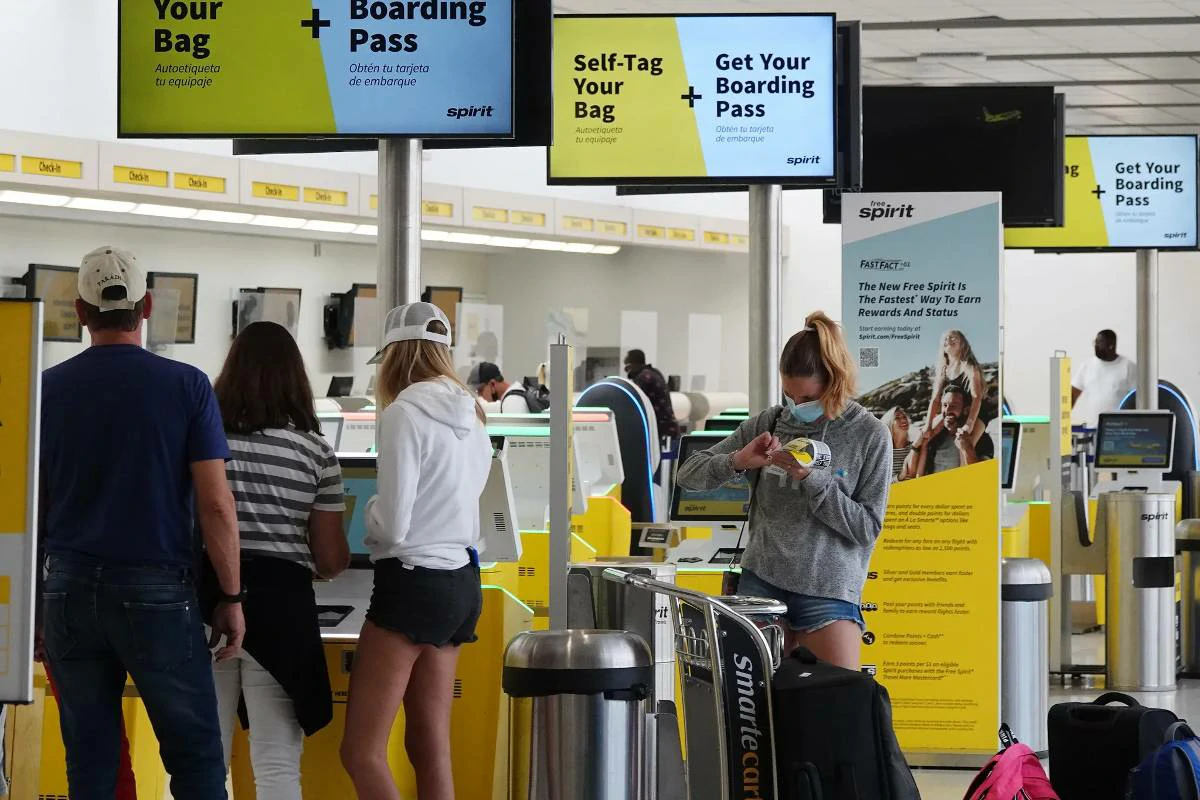
Understanding the different types of bags allowed on Spirit Airlines, their sizes, and the associated fees will help you pack efficiently and avoid unexpected charges.
1. Personal Item: Size and Weight Restrictions
As your one free allowance on Spirit Airlines, it’s essential to maximize the use of your personal item. It must fit under the seat in front of you and adhere to the following dimensions:
- Maximum Dimensions: 18 x 14 x 8 inches (45 x 35 x 20 cm), including handles and wheels.
- Weight: No set weight limit, but it must be light enough for you to lift into the overhead bin if needed.
2. Carry-On Bag: Size and Weight Restrictions
For an additional fee, you can bring a carry-on bag that fits in the overhead bin. Ensure your carry-on adheres to these restrictions:
- Maximum Dimensions: 22 x 18 x 10 inches (56 x 46 x 25 cm), including handles and wheels.
- Maximum Weight: 40 pounds (18 kg)
3. Checked Bag: Size and Weight Restrictions
If you have more luggage than a carry-on can accommodate, you can check it in for a fee. Spirit Airlines imposes these restrictions on checked bags:
- Maximum Linear Dimensions: 62 inches (158 cm) in total (length + width + height).
- Maximum Weight: 40 pounds (18 kg)
4. Overweight and Oversized Bag Fees
Exceeding Spirit Airlines’ baggage size and weight limits incurs additional fees.
- Overweight Bags (41-50 lbs): $50 fee
- Overweight Bags (51-100 lbs): $100 fee
- Oversized Bags (63-80 linear inches): $100 fee
- Oversized Bags (over 80 linear inches): $200 fee
To avoid these hefty fees, it’s crucial to weigh and measure your bags before arriving at the airport. Consider using a luggage scale and measuring tape to ensure compliance with Spirit Airlines’ baggage policy.
Other Spirit Fees
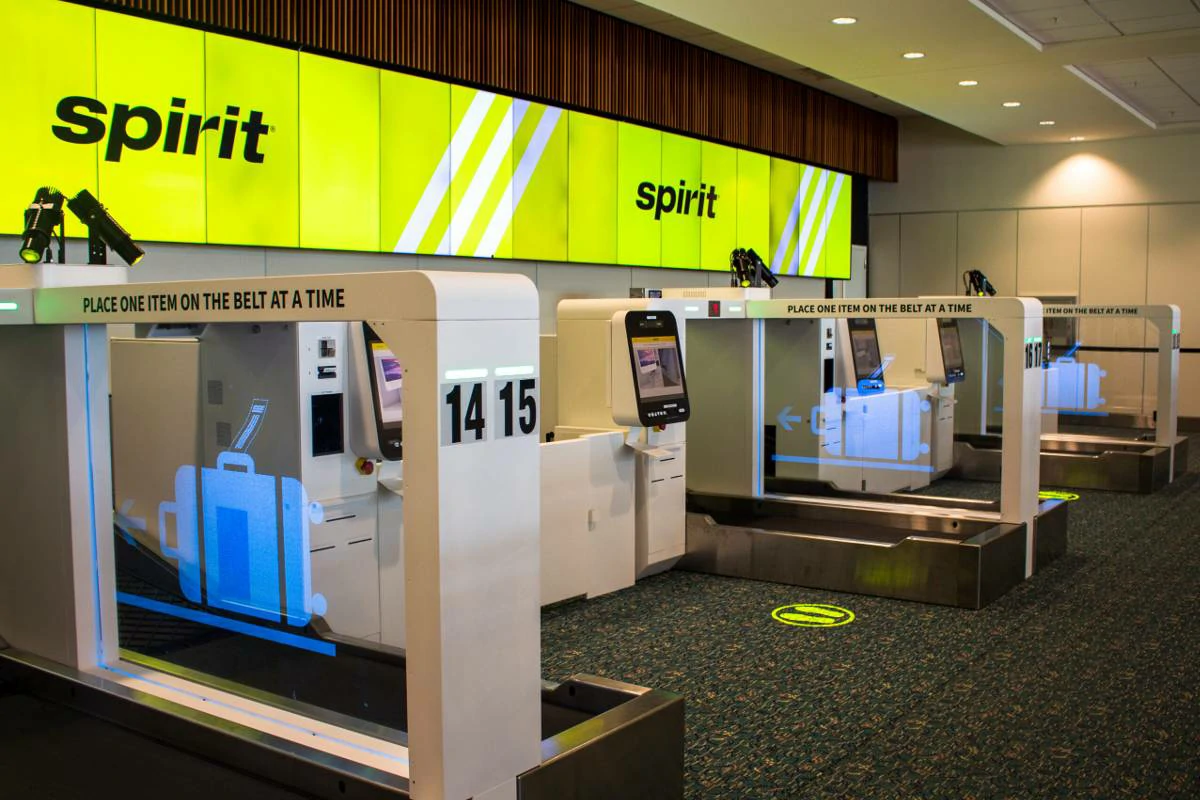
While Spirit Airlines is renowned for its low base fares, it’s important to be aware of the additional fees associated with various services beyond baggage.
1. Seat Selection Fees
Spirit Airlines operates on an unassigned seating policy, meaning you’ll be randomly assigned a seat during check-in unless you choose to pay for a specific seat. Seat selection fees vary depending on the seat’s location and the time of purchase.
- Standard Seats: Typically range from $5 to $50.
- Big Front Seats: These offer extra legroom and may cost between $12 and $170.
- Exit Row Seats: These are often the most expensive, with fees starting at $25 and reaching up to $250.
2. Priority Boarding Fees
For those who want to board the plane early and secure overhead bin space, Spirit Airlines offers priority boarding for an additional fee. This allows you to board before most other passengers, ensuring you have ample space for your carry-on bag.
- Zone 2 Boarding: Typically costs between $5.99 and $59.99, depending on the route and demand.
If you have a Spirit Airlines Mastercard or are a $9 Fare Club member, you may be eligible for free Zone 2 boarding on select flights.
3. In-flight Amenities Fees
Spirit Airlines charges for most in-flight amenities, including food, beverages, and entertainment. Here’s a glimpse of some of the fees you might encounter:
- Snacks and Drinks: Prices vary depending on the item, ranging from $3 for a small snack to $12 for a meal.
- Alcoholic Beverages: Expect to pay $7 to $12 for beer, wine, or cocktails.
- Streaming Entertainment: Spirit offers movies and TV shows for a fee, typically around $5-$7 per device.
Buying Bundles: Just For You and Bundle It
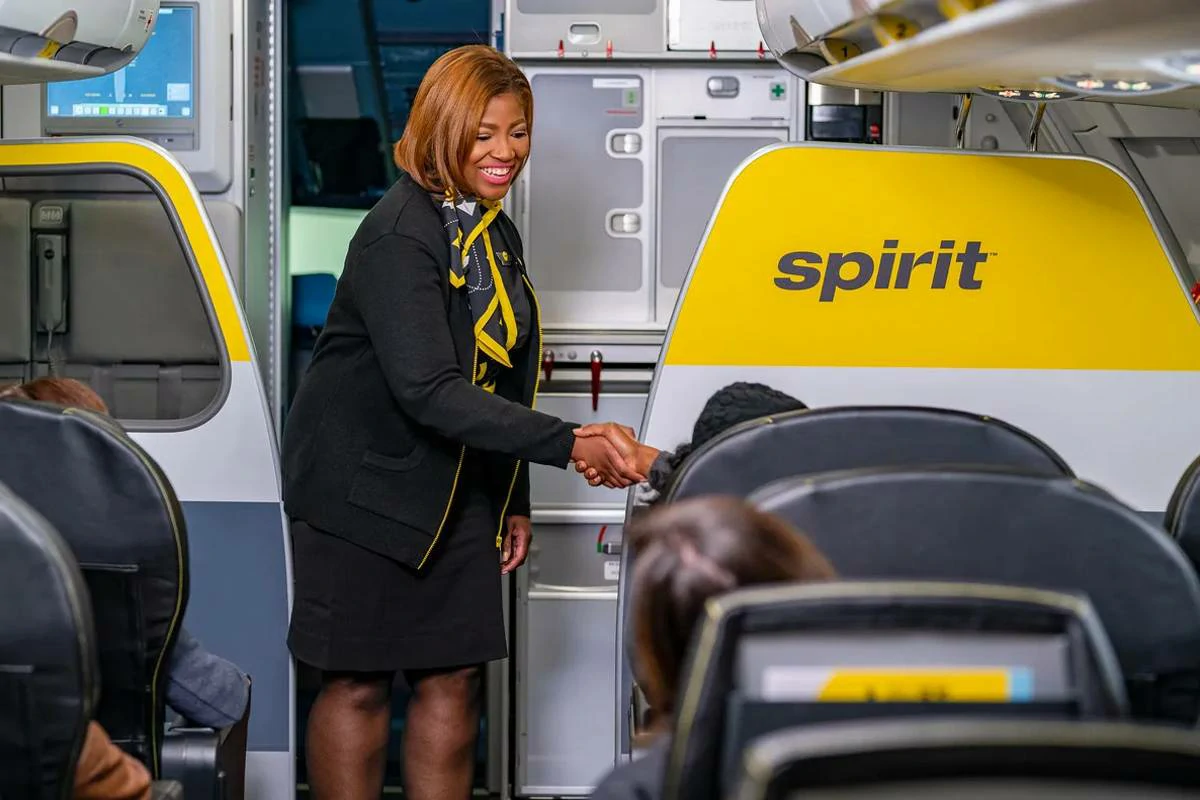
Spirit Airlines offers bundle options to simplify the booking process and potentially save on additional fees. These bundles combine multiple services into a single purchase, often at a lower price than buying each service separately.
1. What Bundles Are and How They Work
Essentially, bundles are like pre-packaged deals that include various services such as seat assignments, carry-on bags, checked bags, and even priority boarding. Spirit Airlines provides two main bundle options:
- Just For You: This personalized bundle tailors options to your specific travel needs. You can choose the services you want and leave out the ones you don’t.
- Bundle It: This is a more standardized bundle that includes a set of pre-selected services. It’s a convenient option if you know you’ll need multiple add-ons.
To access these bundles, select the “Bundle It” option during the booking process on the Spirit Airlines website. You can then customize your “Just For You” bundle or choose a “Bundle It” option.
2. Just For You: Personalized Bundle Options
The “Just For You” bundle allows you to handpick the services you need for your trip. You can choose from various options, including:
- Seat Selection: Choose your preferred seat, whether it’s a standard seat, Big Front Seat, or exit row seat.
- Carry-On Bag: Add a carry-on bag if you have more than a personal item.
- Checked Bag: Include a checked bag if you have more luggage.
- Shortcut Security: Expedite the security screening process at select airports.
- Flight Flex: Add flexibility to your booking with options to change or cancel your flight.
3. Bundle It: Standard Bundle Options
If you prefer a pre-set package, Spirit Airlines offers several “Bundle It” options, each with different combinations of services:
- The Basics: This usually includes a carry-on bag and seat assignment.
- The Works: Typically includes a carry-on bag, checked bag, and seat assignment.
- The Perks: This may offer additional benefits like priority boarding and Shortcut Security.
4. Pros and Cons of Buying Bundles
Pros
- Convenience: Bundles streamline the booking process and save you time from selecting each service individually.
- Potential Savings: Bundles often offer discounts compared to buying each service separately.
- Peace of Mind: Knowing your seat, baggage, and other services are taken care of can reduce travel stress.
Cons
- Unnecessary Services: You might end up paying for services you don’t need if you choose a bundle that doesn’t align with your travel preferences.
- Limited Flexibility: Bundles might not offer the exact combination of services you want, so you might have to compromise.
How to Avoid Paying Baggage Fees on Spirit Airlines
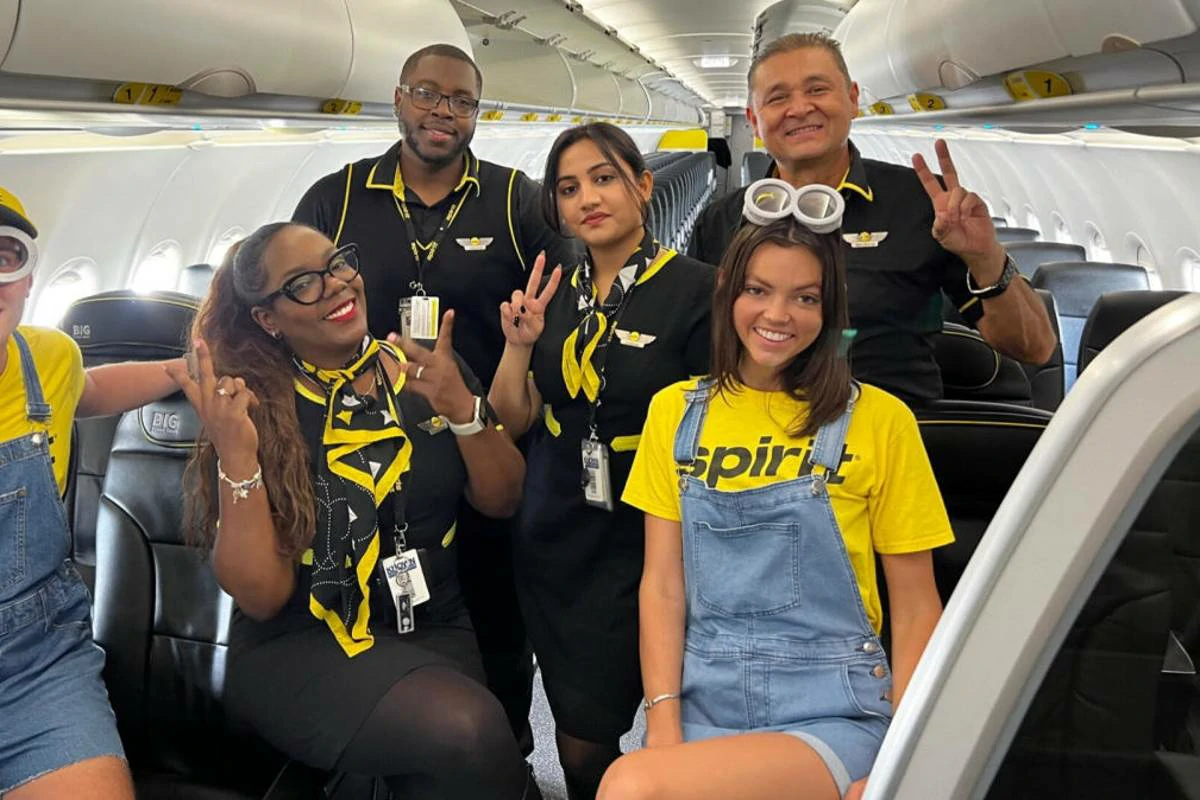
While Spirit Airlines’ baggage fees can add up, there are savvy strategies you can employ to minimize or even eliminate these costs.
Here are some tried-and-true methods to help you avoid paying baggage fees on your next Spirit Airlines flight.
1. Pack Light and Use a Personal Item
The most straightforward way to avoid baggage fees on Spirit is to pack light and stick to a personal item that fits under the seat. This approach requires some planning and discipline, but it can save you a significant amount of money.
“Packing light is the golden rule for flying Spirit,” says minimalist travel expert, Leonie Dawson. “Challenge yourself to fit everything you need into a backpack or small duffel bag. You’ll be surprised at how little you actually need for a trip.”
Here are some tips for packing light
- Choose versatile clothing items that can be mixed and matched.
- Roll your clothes instead of folding them to save space.
- Utilize packing cubes to compress and organize your belongings.
- Wear your bulkiest items on the plane.
- Leave behind unnecessary toiletries and purchase them at your destination.
2. Join the $9 Fare Club for Discounts
Spirit Airlines’ $9 Fare Club is a membership program that offers exclusive discounts on flights, bags, and other services. For an annual fee of $69.95, members gain access to lower fares and reduced bag fees.
Budget Travel Blogger, Nomadic Matt, shares: “If you fly Spirit even a few times a year, the $9 Fare Club can quickly pay for itself in savings. Plus, you get access to exclusive deals and promotions throughout the year.”
3. Use a Spirit Airlines Credit Card for Perks
If you’re a frequent Spirit flyer, consider applying for a Spirit Airlines credit card. These cards often come with benefits like free checked bags, priority boarding, and even statement credits for baggage fees.
Financial Advisor, Suze Orman, advises: “Choose a credit card that aligns with your spending habits and travel needs. If you fly Spirit regularly, their credit card could be a valuable asset to help you save on baggage fees and other expenses.”
4. Look for Promotions and Deals
Spirit Airlines occasionally runs promotions that offer discounted or even free bags. Keep an eye on their website and social media channels for these deals.
Travel Hacking Expert, The Points Guy, recommends: “Sign up for Spirit Airlines’ email newsletter to receive notifications about promotions and sales. You might stumble upon a great deal that saves you money on baggage fees.”
How Spirit Bag Fees Compare with Other Airlines
Spirit Airlines’ unique fee structure often raises questions about how their baggage fees stack up against traditional carriers. Let’s delve into a detailed comparison to help you make informed decisions.
1. Average One-Way Baggage Fees by Airline
| Airline | First Checked Bag | Second Checked Bag | Carry-On Bag |
|---|---|---|---|
| Spirit Airlines | $37-$65 | $42-$75 | $37-$65 |
| American Airlines | $30 | $40 | Free |
| Delta Air Lines | $30 | $40 | Free |
| United Airlines | $30 | $40 | Free |
| Southwest Airlines | Free | Free | Free |
| JetBlue Airways | $35 | $45 | Free |
| Alaska Airlines | $30 | $40 | Free |
| Frontier Airlines | $30-$60 | $35-$70 | $35-$60 |
| Allegiant Air | $18-$75 | $33-$75 | $10-$75 |
| Sun Country Airlines | $30-$45 | $35-$50 | $25-$35 |
2. Spirit vs. Other Airlines: A Comparison
As the table indicates, Spirit Airlines’ baggage fees tend to be higher than those of traditional carriers for checked bags, especially when purchased at the airport or gate.
However, they often offer lower fares than other airlines, which can offset the cost of baggage fees for budget-minded travelers.
Aviation Analyst, Henry Harteveldt, explains: “Spirit Airlines’ model caters to price-sensitive travelers who prioritize low fares and are willing to pay for additional services like baggage. This approach allows them to offer base fares that are often significantly cheaper than competitors.”
3. The Trade-Off: Lower Fares vs. More Fees
Choosing Spirit Airlines involves a trade-off between lower fares and potential additional fees for baggage and other services. If you’re a light packer and can travel with just a personal item, Spirit can be an excellent option for saving money on airfare.
However, if you anticipate checking bags or needing additional services, it’s crucial to factor in these costs when comparing prices with other airlines. Ultimately, the best choice depends on your individual travel needs, priorities, and budget.
FAQs
1. Can I bring a backpack as my personal item on Spirit?
Yes, you can! As long as your backpack adheres to the size restrictions (18 x 14 x 8 inches), it qualifies as a personal item and can be brought on board for free.
2. How strict is Spirit Airlines about carry-on size?
Spirit Airlines is known for its strict enforcement of carry-on size restrictions. Be sure to measure your carry-on bag carefully and ensure it fits within their dimensions. If it doesn’t, you may be required to check it at the gate for a significantly higher fee.
3. Can I pool my baggage allowance with another passenger?
No, each passenger is responsible for their own baggage allowance. You cannot combine your baggage allowance with another traveler, even if you are traveling together.
4. Can I bring my medication in my carry-on bag?
Yes, you can bring necessary medications in your carry-on or checked bag. It’s advisable to keep them in their original containers with the prescription label for easy identification.
5. What happens if my bag is overweight or oversized?
If your bag exceeds the weight or size limits, you will be charged additional fees. These fees can be quite hefty, so it’s important to weigh and measure your bags before arriving at the airport.
The Bottom Lineg
Spirit Airlines’ bare fare model and a la carte pricing for baggage can be advantageous for budget-minded travelers who pack light. However, it’s crucial to understand their baggage policy thoroughly and factor in additional fees when comparing fares with other airlines.
